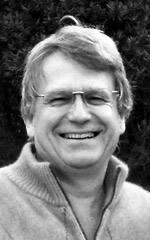
Professor Henrik Moller
Henrik is the Science Leader of the New Zealand Sustainability Dashboard project.
Prof Henrik Moller has recently retired from the University of Otago and is now Professor Emeritus at CSAFE.
He has over 25 years of experience studying the ecology and control of introduced species in New Zealand, sustainable harvest management and conservation of threatened species. Henrik teaches wildlife management part time at the University of Otago and works as an ecological consultant for ARGOS for the remaining time. Work on introduced wasps and their biocontrol led on to research on cats, ferrets, stoats, rabbit and rat impacts on native biodiversity and how best to control them. Henrik's research highlighted the importance of ferrets as wild animal vectors of bovine tuberculosis in farming landscapes. Another study assessed the conservation value of beekeeping and whether honey bees sometimes promote weed problems. Henrik was part of a MAF team that assessed gaps in knowledge and research priorities to promote more environmentally friendly farming and forestry in New Zealand. He is a passionate advocate of conservation through sustainable use and farmer-led approaches to simultaneous capturing of the best economic, social and environmental outcomes for farmers and their communities.
Henrik is the Science Leader of the New Zealand Sustainability Dashboard project.
Prof Henrik Moller has recently retired from the University of Otago and is now Professor Emeritus at CSAFE.
He has over 25 years of experience studying the ecology and control of introduced species in New Zealand, sustainable harvest management and conservation of threatened species. Henrik teaches wildlife management part time at the University of Otago and works as an ecological consultant for ARGOS for the remaining time. Work on introduced wasps and their biocontrol led on to research on cats, ferrets, stoats, rabbit and rat impacts on native biodiversity and how best to control them. Henrik's research highlighted the importance of ferrets as wild animal vectors of bovine tuberculosis in farming landscapes. Another study assessed the conservation value of beekeeping and whether honey bees sometimes promote weed problems. Henrik was part of a MAF team that assessed gaps in knowledge and research priorities to promote more environmentally friendly farming and forestry in New Zealand. He is a passionate advocate of conservation through sustainable use and farmer-led approaches to simultaneous capturing of the best economic, social and environmental outcomes for farmers and their communities.

